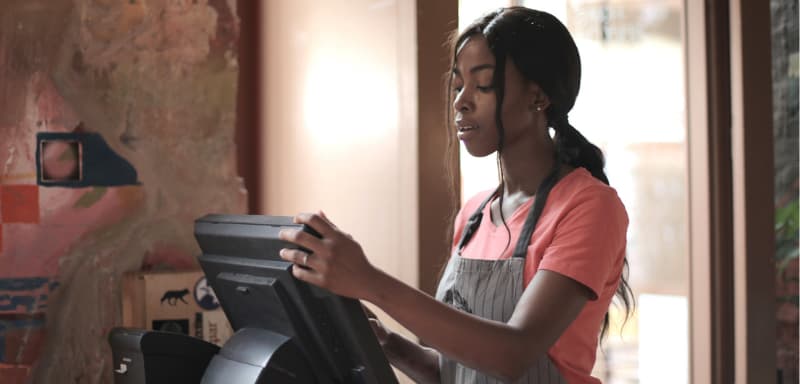Employment Tips
How to Make a Good CV Without Experience
This beginner’s guide shows you how to make a great CV even if you have no work experience. Perfect for young job seekers in South Africa.
Advertisement
Tips for Beginners Starting Their Careers

Making a good CV without experience can feel challenging, but it’s completely possible to create one that stands out. The key is to focus on your skills, education, and personal qualities instead of work history. This approach shows employers that you still have valuable strengths to offer.
You can highlight things like your school projects, volunteer work, or any skills you’ve learned outside of a job. Using a clear layout and a strong personal statement helps grab attention even if your experience is limited.
By organizing your CV well and emphasizing what you bring to the table, you can make a positive impression. This guide will help you build a confident CV that opens doors despite little or no work experience.
Key Components of a Strong CV
A well-made CV clearly shows who you are, what you can do, and what you have learned. It uses easy-to-read sections to organize important details about you. Each part of your CV should help the person reading it understand why you are a good fit.
You will be redirected to another website
You’ll receive messages for less than 1 week, with a maximum of 1 message per day. You can unsubscribe anytime by replying STOP. By submitting this form, I confirm that I am 18+ years old and agree to the Privacy Policy and Terms and Conditions. I also provide my signature, giving express consent to receive informational messages via automated emails, SMS, MMS text messages, and other forms of communication. Message frequency may vary as part of our good-faith effort to respond to your inquiry. Message and data rates may apply. Text STOP to cancel. I understand that my consent to receive communications is not a condition of purchase and that I may revoke my consent at any time.
Contact Information
Your contact details must be complete and easy to find. At the top of your CV, include:
- Your full name
- Phone number
- Email address
Make sure your email sounds professional. Avoid nicknames or casual words.
If you want, add your city or address, but this is optional.
Double-check that all details are correct. This part shows employers how to reach you easily.
Professional Summary
This is a short paragraph about your skills and goals. It tells employers what you bring to the job.
Focus on your main strengths, like soft skills (teamwork, communication) or any technical skills you have.
Also, include your career goals, such as what job you want and why.
Keep this part clear and direct, using about 2-4 sentences. Avoid long or vague statements.
Education Details
List your school or college here, starting with the latest. Include:
- Name of school or program
- Dates attended
- Any certificates or degrees earned
If you don’t have work experience, you can add relevant courses or projects. Mention achievements that show your skills.
Include your grades only if they are good and support your application.
This section shows what you have learned and how ready you are to work.
Highlighting Transferable Skills
Transferable skills are abilities you gain from different activities, like school, volunteering, or hobbies. These skills are useful in many jobs. Knowing how to spot and explain them clearly will make your CV stronger.
Identifying Relevant Abilities
Look at the job description carefully to find which skills the employer wants. These might include teamwork, problem-solving, or time management. Think about tasks you’ve done in school projects, clubs, or at home that show you used these skills.
Write down skills such as:
- Communication
- Organization
- Attention to detail
- Leadership
Next, pick skills that match the job you want. Choose ones you know well and can give examples for. Showing that you understand what the employer needs will help your CV stand out.
Showcasing Soft Skills
Soft skills are personal traits that help you work well with others and solve problems. These are just as important as technical skills, especially when you have little work experience.
Use short examples on your CV to show soft skills. For instance, you might say:
- “Led a team of five classmates on a group project, finishing on time and with strong results.”
- “Volunteered regularly, improving communication and time management skills.”
Clear examples prove you can use these skills in real situations. This helps employers see your potential, even if you haven’t worked in a formal job yet.
Making the Most of Extracurricular Activities

You can use extracurricular activities to show skills and qualities that employers want. Activities like volunteering, projects, and hobbies can demonstrate your work ethic, creativity, and teamwork.
Including Volunteer Experience
Volunteer work can add value to your CV, especially if you have little or no job experience. When listing volunteer roles, focus on what you did and the skills you used.
Use bullet points to detail your tasks:
- Organized events or fundraisers
- Worked with diverse groups of people
- Managed time and resources efficiently
Mention any leadership roles you held, such as team leader or event coordinator. This shows responsibility and commitment.
Be specific about the impact of your volunteer work. For example, “Helped raise $1,000 for local charity” is stronger than just saying “Volunteered for charity.”
Describing Projects and Hobbies
Choose projects and hobbies that relate to the job you want. This could include school projects, personal work, or group activities.
Explain what you accomplished and what skills you gained, such as problem-solving, creativity, or communication.
Use clear points like:
- Built a website for a school club
- Created artwork displayed in a local exhibit
- Learned coding languages through self-study
Avoid listing hobbies without any connection to skills or work. Focus on those that show useful qualities. This helps employers see how you can contribute.
Tips for a Professional CV Presentation
Your CV should look clean and be easy to read. This means careful spacing, clear fonts, and no clutter. Also, double-check your CV for mistakes and change it to fit each job you apply for.
Formatting and Layout
Use a simple font like Arial or Calibri, sized between 10 and 12 points. Make sure your margins are about one inch on all sides. This keeps the text from feeling crowded.
Organize your CV with clear headings such as Education, Skills, and Experience. Use bullet points to list information instead of long paragraphs. This helps recruiters find important details fast.
Keep your CV to one or two pages. Too much information can overwhelm the reader. White space is useful because it makes the document easier to scan.
Avoid colors or decorative fonts. Keep it professional with black text on a white background. This ensures your CV looks good on any computer or device.
Proofreading and Customization
Always proofread your CV before sending it. Look for spelling, grammar, and punctuation errors. You can read it out loud or ask a friend to check it for you.
Customize your CV for each job. Use keywords from the job description. This shows that your skills match what the employer wants.
Change your personal statement or objective to fit the role. Highlight the most relevant skills first. Tailoring your CV improves your chance of getting noticed.
Final Thoughts
Even if you don’t have work experience yet, you can still create a strong CV that gets noticed. By focusing on your skills, education, and the things you’ve done outside of formal jobs, you’re showing employers that you’re ready to learn and grow.
Take your time to plan your CV, be honest about your strengths, and always keep it neat and easy to read. Every expert was once a beginner — and your first CV is your first big step towards the job you want. You’ve got this!
Trending Topics

Job Interviews: How to Handle Difficult Questions
Learn how to handle difficult job interview questions with confidence. From preparation to follow-up, rock your next interview!
Keep Reading
What Does a School Assistant Do: Key Roles and Responsibilities Explained
School assistants are the quiet heroes of the classroom. Find out how your helping hand makes a big impact every day.
Keep Reading
What Does a Cashier Do: Key Responsibilities and Daily Tasks Explained
Cashier jobs are a great way to start working. Learn what the job involves and the skills you’ll need to work in shops and fast food outlets.
Keep ReadingYou may also like

How to Answer ‘Tell Me About Yourself’ Effectively in Job Interviews
Nail the most common interview question with a short, smart answer that shows your value and personality — without sounding rehearsed.
Keep Reading
How to Work in a Call Centre: Tips for Success and Growing Your Career in South Africa
Explore South African call centre jobs: skills, pay, hiring tips, and how to succeed even if you’re just starting out.
Keep Reading
Common Job Search Mistakes and How to Avoid Them
Avoid common job search mistakes that could cost you your next opportunity. Learn practical tips to make a great impression.
Keep Reading